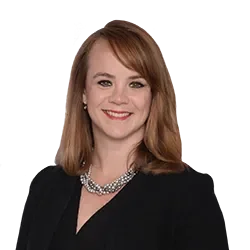ASAP
DOL Issues New Information on its PAID Self-Audit and Self-Reporting Program
Last month, we reported on the U.S. Department of Labor, Wage and Hour Division’s (“WHD”) newly created Payroll Audit Independent Determination (“PAID”) Program, through which employers can proactively seek to resolve potential and actual violations of the Fair Labor Standards Act (“FLSA”). The WHD recently issued additional information on the program. While not all-encompassing, the new publication sheds more light on the program’s mechanics and the “steps” employers must take to participate.
Eligibility to Participate in the PAID Program
According to the DOL’s new guidance, to be eligible, an employer must be able to certify the veracity of the information identified below:
- That the entity is an “employer” covered by the FLSA.1
- The employees included in the proposed self-audit are not covered by any federal prevailing wage laws, such as the Davis Bacon Act, the Service Contract Act, prevailing wages established by executive orders, or under various immigration visa programs.
- The pay practices that are the subject of the proposed audit cannot be the same pay practices that:
- Either the WHD or any court of law, within the last five (5) years, has found to be a violation of the FLSA’s minimum wage and overtime provisions;
- Are currently being litigated, to which the employer is a party to the litigation;
- Are currently being investigated by the WHD;
- Are the subject of recent complaints made by the company’s employees or made on the employees’ behalf by representatives to: (a) the company and its representatives, (b) the WHD, or (c) state wage enforcement agencies, about which the Company specifically has knowledge of or is aware; or
- Were addressed by the company in a previous PAID program submission.
- The Company has a continuing duty to update WHD on any changes to any of the previously identified information.
Eligibility is determined on a case-by-case basis. Of course, the WHD has made it clear that it may exercise its discretion to include or exclude any employer from participating in the PAID program, regardless of whether the employer meets these criteria.
Mandatory Review FLSA Compliance Materials
To ensure that employers enter into the PAID program with proverbial “open eyes,” the WHD requires employers to utilize its online portal to conduct a review of all applicable materials. Once completed, the WHD’s website will generate a Certificate of Completion that will need to be submitted to the WHD along with the rest of the required documentation.
Conducting Audit Compensation Practices
Once the company has obtained is Certificate of Completion, the employer may begin the auditing process.2 While the WHD has not given express criteria on how to conduct the audit, it has identified the information that must be produced to the WHD as a result. Specifically, the employer must provide to WHD:
- A concise explanation of the scope of potential violation(s), which may be used when crafting a liability release;
- Names, addresses, and phone numbers of all affected employees;
- Back wage calculations, including methodology and supporting evidence used in the calculation;
- Payroll records and “any other relevant evidence”;
- Detailed time records for each affected employee during the two-year period;
- Records demonstrating that the company has corrected the compensation practices at issue, and that pay practices now comply with the FLSA;
- The Certification of Completion (see above); and
- Certification that the employer meets all of the eligibility criteria (see above).
To submit the information and begin the program, the employer must contact its local WHD District Office for specific instructions and discussion of next steps.
Payment of Back Wages
The process concludes with the WHD’s review of the submitted materials and assessment of back wages owed. While the employer must provide its own calculations of back wages, that sum is not automatically accepted by the WHD. While not expressly stated in the latest guidance, past practice dictates that the WHD will not approve a release of employees’ rights to bring a private action if it is not in agreement as to the amount of back wages owed. Indeed, the latest guidance explicitly points out that should the employer decide to pay back wages prior to the WHD’s review of the calculation and makes its own assessment of back wages owed, that payment will be considered “unsupervised” and will not act as a waiver of the employees’ private right of action.
Successful participation in the PAID program concludes with payment to employees of 100% of the calculated back wages owed, and the execution of a narrowly tailored release of claims by the employees.
Conclusion
The PAID program provides employers with a proactive opportunity to resolve potential FLSA liability quickly and at a lower cost than waiting for the letter from plaintiffs’ counsel or a knock on the door from a WHD investigator. Absent unusual circumstances, employers will pay 100% of back wages for two years, but no liquidated (double) damages or civil money penalties with substantial attorney fees savings. Although employees may decline the back wages and not sign the WHD waiver form, most will accept the back wages leaving collective actions unlikely. Nonetheless, participating in the program presents some risk and should not be undertaken without guidance from your attorney.3

